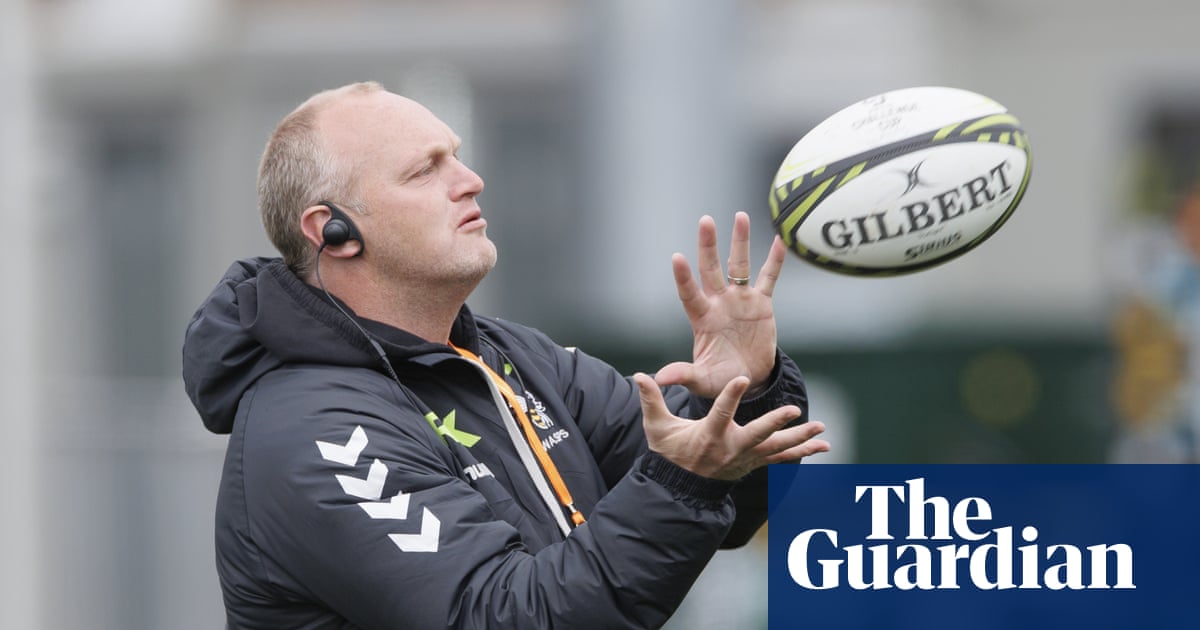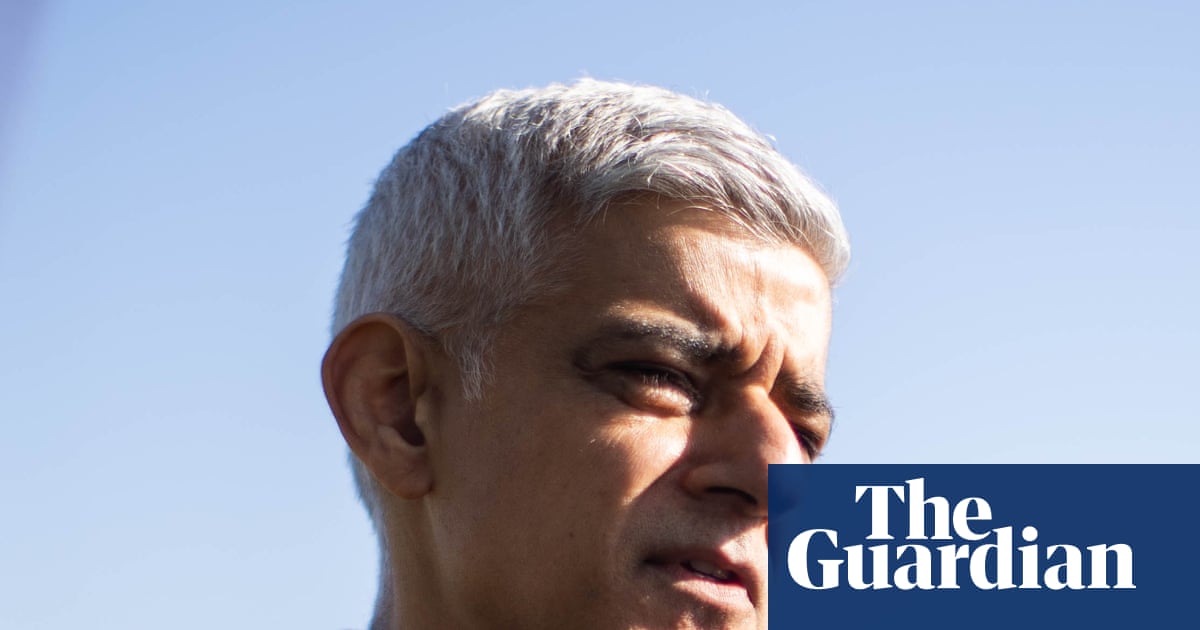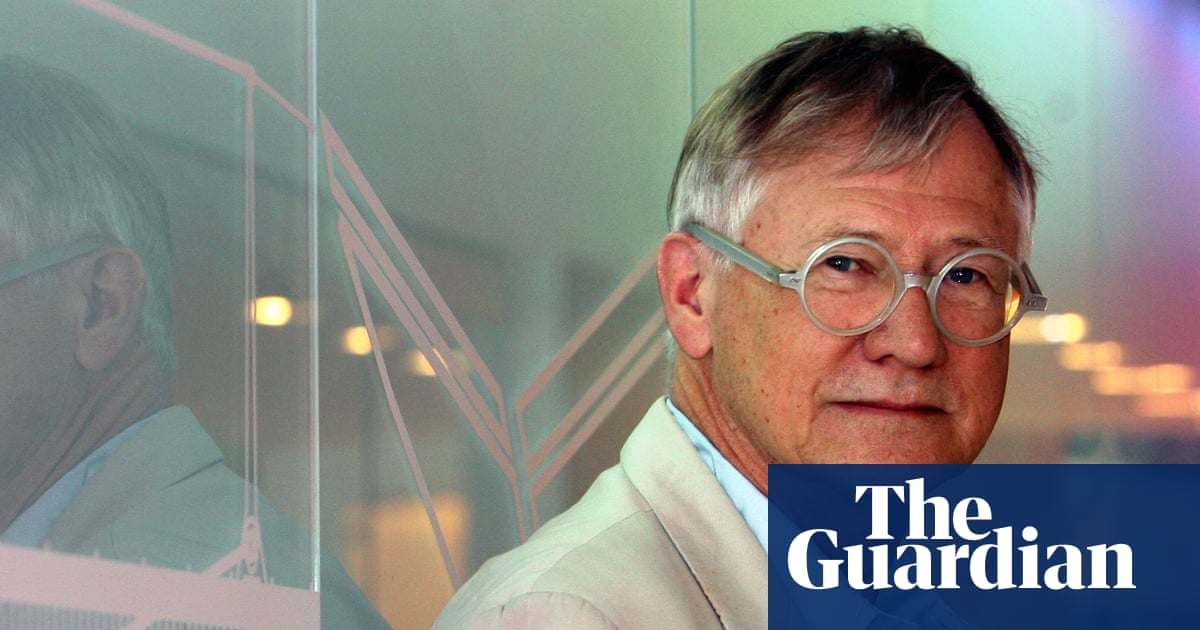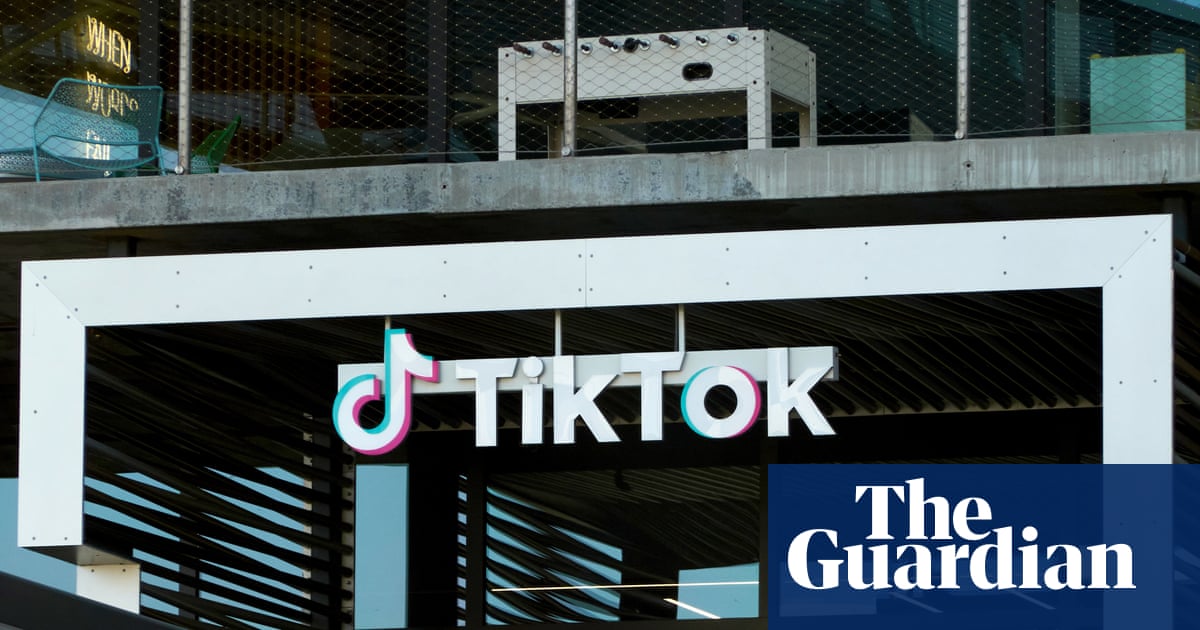Régis who?
It is May 2024 and Illan Meslier, the Leeds goalkeeper, is singing the praises of a former Lorient youth coach whose astute mentoring shaped his career. But who is this left-field thinker who dispatched his young goalkeepers to undergo professional boxing training, spend hours performing acrobatics on trampolines and talk intensely to sports psychologists? Régis Le Bris eventually became Lorient’s first-team manager in 2022 but, after a promising opening season, the Breton team were relegated from Ligue 1 last spring. No matter; a month on from that chat with Meslier in North Yorkshire, Sunderland named Le Bris as their head coach and, now, the 49-year-old is preparing to lead the club out at Wembley on Saturday.
Along the way the self-confessed “average” Rennes defender turned academically inclined youth coach – he holds a doctorate in human physiology and biomechanics and a psychology diploma – has delighted in trampling on convention. Unusually, a man who began learning English in 2022 arrived on Wearside alone and was happy to work with Sunderland’s coaching staff. He lives near his Newcastle counterpart Eddie Howe, and a host of north-east footballers, in an upmarket area of Northumberland but that is about as conventional as Le Bris gets. Part of those doctorate studies involved compiling a dissertation on new ways of using oxygen to revive fatigued and distressed athletes. Whatever happens on Saturday his sometimes unorthodox tactical methodology has breathed new life into Sunderland.
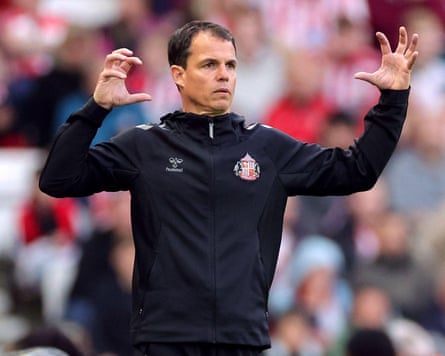
What’s trigonometry got to do with it?
Although Le Bris adapts formations, personnel and tactics to the opposition, his philosophy is underpinned by a belief that the game is a form of trigonometry. “Triangles are the basis of everything we do,” says a coach whose often counterattacking winger-propelled gameplans tend to be heavily dependent on triangular passing interactions between full-backs, wingers and No 8s. As the forward Eliezer Mayenda says: “It’s all about finding the right triangles.” During Le Bris’s teenage years in the western Breton village of Pont-l’Abbé, he devoted his spare time to completing an in-depth analysis of Arsène Wenger’s tactics as Monaco’s manager. As an adult, he spent holidays touring clubs across Spain and England – Arsenal, Chelsea, Crystal Palace, Everton and Leeds included – to watch their coaches. “He’s not someone who shouts at you,” the Sunderland striker Wilson Isidor says, “but he makes you understand things really, really thoroughly.” The winger Patrick Roberts agrees. “He’s efficient,” he says. “He’s brought us new ideas and he’s capable of changing our play depending on the opponent. He’s modern.”
How come they’re so young?
With a median age of 22.4 Sunderland have, on average, fielded the Championship’s youngest starting XIs this season. A squad notable for the absence of outfield players over 30 ranks as one of Europe’s most youthful and is often heavily reliant on the much-coveted midfield skills of the 19-year-old Jobe Bellingham and 17-year-old Chris Rigg. It is part of a strategy devised by Kristjaan Speakman, Sunderland’s sporting director, involving the fusion of promising youngsters from the highly regarded academy with raw, often flawed, young talent acquired relatively cheaply from across Europe. There is no squeamishness about buying to sell. Last season’s star winger Jack Clarke joined Ipswich for £15m last summer, and another winger, the 19-year-old Tommy Watson, will sign for Brighton for £10m this summer. Bellingham was bought from Birmingham for £1.5m but could be poised to join Borussia Dortmund for £25m. Clarke’s replacement has been the excellent Romaine Mundle, a former Tottenham youth player recruited from Standard Liège for £1m. Le Bris’s two main strikers, Isidor, a £5m purchase from Zenit St Petersburg, and Mayenda, £1m from Sochaux, have appreciated considerably in value. Whether this strategy could continue working in the Premier League remains to be seen but Sunderland’s owner, the 27-year-old Swiss-French billionaire Kyril Louis-Dreyfus, is on a mission to run the club as a sustainable business.
after newsletter promotion
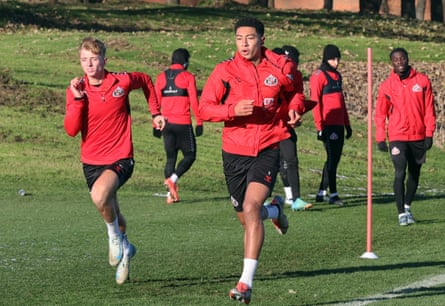
Could they possibly survive in the top tier?
It helps that Le Bris, unlike some recently promoted managers (see Russell Martin at Southampton), is not a slave to positional-style, play-it-out-from-the-back football. Sunderland overcame Coventry in the playoff semi-final courtesy of about 25% possession and an ultra-low block so winning ugly poses few problems. Nonetheless, a significant investment in higher-calibre players would appear essential if immediate relegation were to be avoided. The infrastructure – a 49,000-capacity stadium and Premier League-standard training facility – is in place but commercial revenues are about a third of those commanded by Leeds, the Championship winners, and require significant boosting. Potential investors are thought to be waiting in the wings, with Louis-Dreyfus believed to be ready to invite them on to the board should promotion be secured.
What about the Enzo factor?
Enzo Le Fée helped create Sunderland’s three goals against Coventry. No matter that the Roma loanee playmaker was largely deployed out of position on the left wing, Le Fée underlined why Le Bris persuaded Speakman to relax club recruitment rules to be reunited with his former Lorient protege in January. Should Sunderland win promotion, a 25-year-old who revels as a No 10 will automatically see his loan morph into a £20m transfer. Much may hinge on whether the recently hamstrung Mundle is fit to start wide on the left at Wembley.

.png) 3 months ago
42
3 months ago
42
